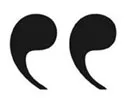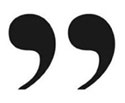
The following comes Steve Gordon, regarded as one of the top attorneys in the music industry. Last week, he outlined 11 contracts that every artist, songwriter and producer should know. So here’s the first one: management contracts.

In this installment, we will discuss management agreements.
As I wrote in “Now You Know Everything about Music Managers,” managers have never played a more important role in the music business than they do today. If you have taken or are ready to take the next step in your music career, you probably need one.
A good manager advances the career of her client in a variety of ways. Traditionally, a manager provided advice on all aspects on the artist’s professional life, used her relationships to generate opportunities, negotiated deals when the opportunity to do so arose, and helped the artist select other members of the “team,” such as accountants, lawyers, booking agents, and publicists. A manager’s principal job was, however, searching for the “holy grail”—shopping the artist to record labels, particularly the majors, with the hope of signing a lucrative recording agreement. Signing a record deal meant a payday for both the artist and the manager. Managers work on commission, so the goal was to sign with a major label and negotiate the largest advance possible. In the 90’s, when I was a lawyer for Sony Music, we paid advances to new artists ranging from $250,000 to upwards of $500,000. If the artist caught fire, both the artist and the manager could become very wealthy from record sales alone. Those days are largely gone.
Starting in 1999, income from recorded music has declined more than 75%, accounting for inflation. As a result, the major labels (Sony, Universal, and Warner, along with their affiliates) sign fewer artists and pay those new artists far more modest advances. An artist may never get a deal, or may be dropped from the label’s roster much faster than in the past, when labels had spare cash to support a developing artist. For instance, Bruce Springsteen did not catch fire until after Columbia (now a Sony affiliate) released two albums. But, Columbia had faith and supported him through the early disappointments.
Today, with the major labels fighting just to survive, a story like that is far less likely to occur. Labels would rather put their resources behind already established acts, where a return on investment is more certain.
In these days of financial insecurity in the record business, the manager’s role is more important than ever. In the past, once the artist was signed to the major label, the manager’s primary function became to serve as liaison between the record company and the artist. The manager lobbied the label to do more, spend more, and focus more on the manager’s artist. However, due to budget cuts and massive layoffs at the labels, today’s manager does a lot of the work that the label used to do. For example, the manager may take over social networking, search for opportunities to get the artist’s music in movies or commercials, or find branding opportunities with sponsors. And, if the artist can’t find an acceptable record deal, the manager may become the artist’s de facto label and take on the responsibility of securing funding from investors or crowd funding to produce records, arranging physical and digital distribution, and everything else the record companies traditionally do.
The Pro-Manager Agreement (With Pro-Artist Commentary).
In the following PDF, I critique a standard pro-management agreement and explain in the comments the changes an artist should negotiate. There are a number of important terms where the interests of the manager are directly adverse to the interests of the artist. For example, it is generally in the manager’s interest to have a long initial term and several options to extend the duration of the agreement. The artist, conversely, will want to be able to get out of an agreement quickly if the manager is not meeting the artist’s goals. This issue is addressed in the comments for the first paragraph of the pro-management agreement.
(if you’d like to download the PDF, it’s here)
Most management agreements base the manager’s commission on gross income that an artist earns from any activities in the entertainment business. It’s crucial for the artist to insist that monies paid to the artist, or on the artist’s behalf, for recording costs, touring expenses and other business expenses are not included in gross income. For instance, if a record company gives an artist an advance of $100,000, and the artist spends $80,000 on recording costs, the manager should not calculate her commission on $100,000. If the contract allowed her do so, she would be entitled to $20,000 and the artist would be left with nothing. This issue is addressed in the comments for subparagraphs 11(b) and (d).
Another very important provision is whether the manager has the right to receive a commission from any contract negotiated during the term — even after the management contract terminates. Pro-manager agreement will usually include such a provision. The artist will want to terminate the manager’s right to commission his income when the contract ends. However, the manager’s position is that if the manger lands a multi-album deal or long-term publishing agreement, the manager should continue to receive money because she helped create that source of income. The compromise is called a “sunset clause.” Under this clause, the Manager’s still receives income from contracts negotiated during the term of the agreement, but that amount of income declines over time and eventually ends within a reasonable time. A n example of a sunset provision is included in the comments for paragraph 13 in the pro-management agreement, and is also contained in the pro-artist agreement provided in this installment.
Other terms are mere “boilerplate”— standard legal phrases that are important to the agreement but equally protect the interests of both parties. I will point out these terms and explain their significance as well. One example is paragraph 29 which states that any amendment to the contract must be made in writing and signed by both parties.
The Pro-Artist Management Agreement.
The following PDF provides an example of a pro-artist management agreement. The contract your new manager presents you with will often start out resembling the pro-manager agreement, and the closer you can negotiate it to the pro-artist agreement, the better.
(download the PDF here)

Steve Gordon gratefully acknowledges the assistance of Ryanne Perio and Anjana Puri in the preparation of this material. Ryanne Perio is a graduate of Columbia Law School and a former legal intern at Atlantic Records and SAG-AFTRA. She is currently an associate at Wilmer, Cutler, Pickering, Hale & Dorr, where she focuses on intellectual property litigation. Anjana Puri is a lawyer pending admission to the New York bar. She currently works as an associate of Mr. Gordon. She received her JD from Benjamin N. Cardozo School of Law (2014) and received her B.A. in International Development Studies from UCLA.
Disclaimer: The information in this series has been prepared for informational purposes only and does not constitute legal advice. This series should be used as a guide to understanding the law, not as a substitute for the advice of qualified counsel. You should consult an attorney before making any significant legal decisions.
The post The Management Contract That Every Artist, Songwriter, and Producer Should Know appeared first on Digital Music News.

Source: Industry News

tag.





